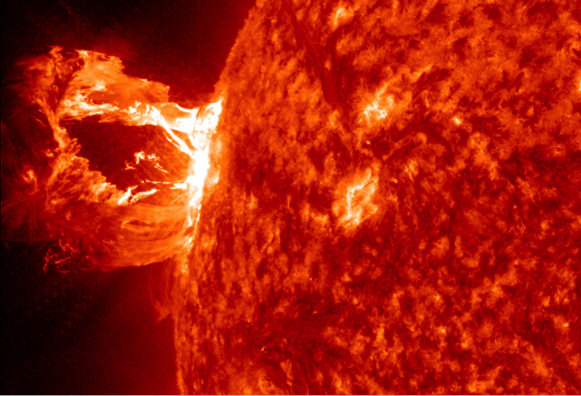Image: NASA
What’s New: The Institute for Defense Analysis is conducting a survey for the federal government.
Why It’s Important: It is always good to remind folks that GPS/GNSS is important, the impacts of disruption, and that space weather can be a problem. And it is always good to give the govt input.
What Else to Know:
- The survey is targeting the following communities:
- Timing
- Communications Networks (e.g., wireless access services, satellite access services, and internet connection, routing, and access services)
- Manufacturing (e.g., robotics, chemical production, fuel refining and processing)
- Navigation and Timing
- Distribution (e.g., pipeline transport, water distribution, electricity distribution)
- Land Usage (e.g., construction, land survey, mining & drilling exploration, agriculture)
- Public Safety & Services (e.g., cyber incident management, fire protection, hazardous material management, law enforcement)
- Timing
- There is a lot of information out there already. You should take the survey anyway.

LINK TO SURVEY
Space Weather Impacts on GNSS Applications
Space weather describes changes in the near-Earth environment from approximately 4 miles (6 km) to the surface of the sun. Like the daily weather we experience, space weather can vary from mild to severe conditions. During moderate to severe events, changes in the near-Earth environment can affect various ground and space-based technologies. Systems that depend on radio frequency signals such as GNSS signals (e.g., GPS) can fail or be degraded by space weather effects. GNSS signals can be partially blocked, resulting in errors in positioning/navigation/timing (PNT), to complete loss of signal, resulting in a lack of PNT information. The following survey asks general questions regarding the end-user application’s reliance on GNSS PNT information and the sensitivity of the associated technology to possible GNSS degradation by space weather. It also seeks to understand the communities’ level of knowledge related to identifying potential effects due to space weather events versus other sources.
Public Burden Statement
A Federal agency may not conduct or sponsor, and a person is not required to respond to, nor shall a person be subject to a penalty for failure to comply with an information collection subject to the requirements of the Paperwork Reduction Act of 1995 unless the information collection has a currently valid OMB Control Number. The approved OMB Control Number for this information collection is 0648-0814. Without this approval, we could not conduct this Space Weather User Survey. Public reporting for this information collection is estimated to be approximately 15 minutes per response, including the time for reviewing instructions, searching existing data sources, gathering and maintaining the data needed, and completing and reviewing the information collection. All responses to this information collection are voluntary. Send comments regarding this burden estimate or any other aspect of this information collection, including suggestions for reducing this burden to the Dr. Jennifer Meehan, National Weather Service, NOAA, 1325 East West Highway, Silver Spring, Maryland, 20910; 301-427-9798, [email protected]
If you have any technical issues or questions about this survey, please contact staff at IDA’s Science and Technology Policy Institute at: [email protected]


